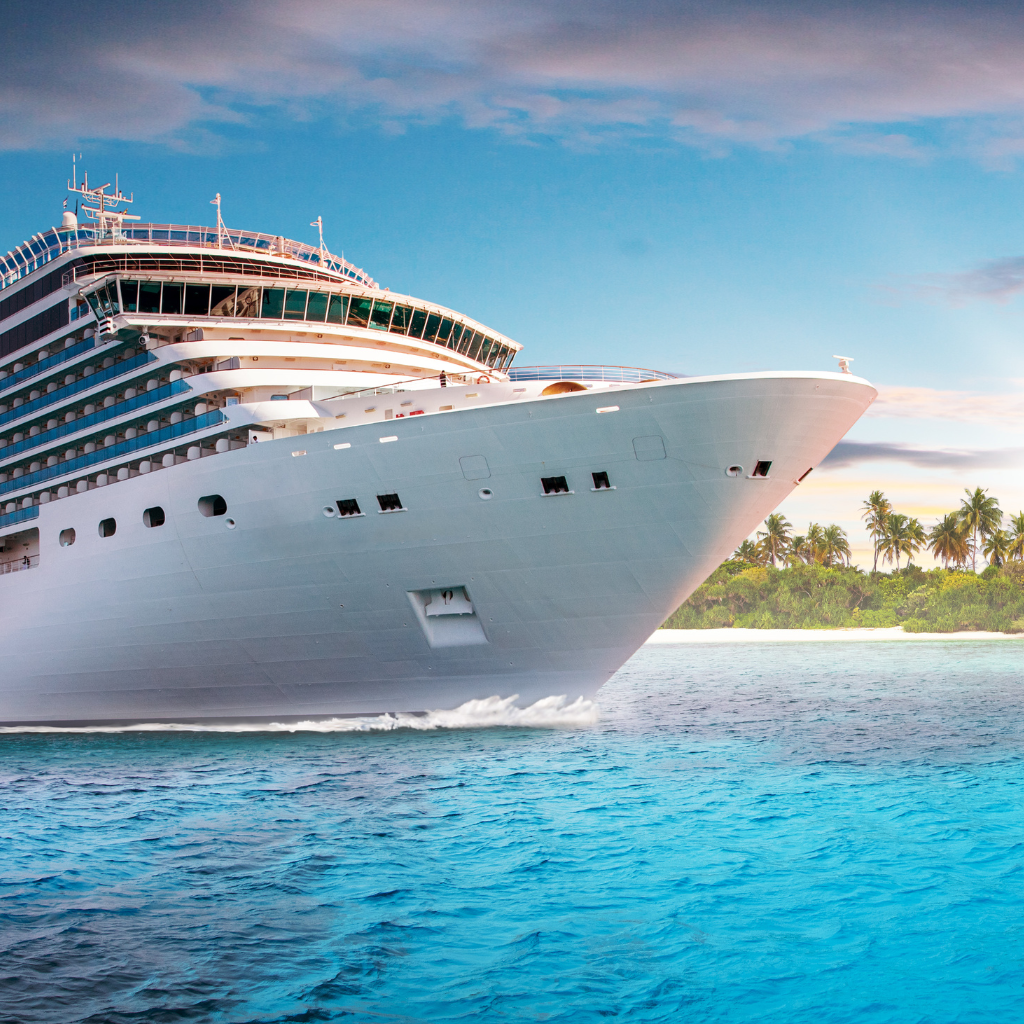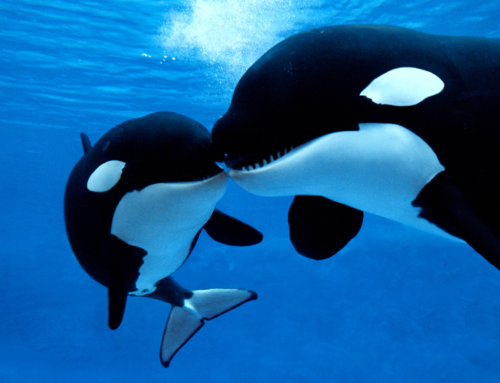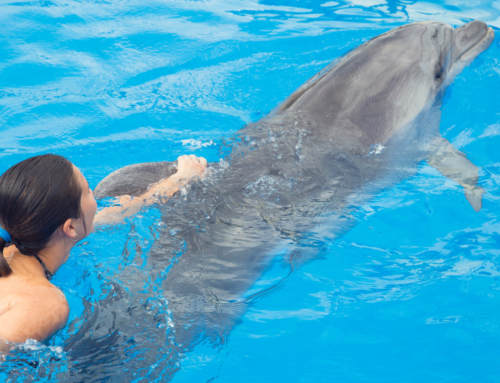
Millions of people take cruises each year, making it one of the most popular forms of travel worldwide. Anyone who knows me, or has listened to my podcast, has most likely heard me rant about how much I hate large cruise lines. Cruises are the absolute worst way to travel in my mind due to their impacts on the environment and wildlife, spread of disease, and damaging various cultures worldwide. Hopefully, you will learn a little of the environmental and economical catastrophes cruise ships have caused around the world after reading this!
Table of Contents
Cruise Ships are Terrible for the Environment
Large vessels with 27k+ passengers produce over a ton of garbage a day per and are often called “floating cities” by environmental experts due to their massive environmental impact. Multiple cruise lines have been caught dumping sewage, garbage, and used fuel directly into our oceans and ignoring their own rules and regulations. Combined with the huge carbon footprint of the cruise liners, cruises are by far the least environmentally friendly way to travel.

A report card from Friends of the Earth on the major cruise lines around the world and their impacts. Read the in-depth analysis here
Cruises and Climate Change
Cruising, especially on large “luxury” vessels, is one of the biggest contributors to climate change around the world. In fact, a recent review found that cruise ships emit over 3 times more carbon dioxide per passenger mile than a jet. Carnival Cruise Lines, one of the world’s largest cruise companies, emitted nearly 10 times more sulfur dioxide around European coasts than all 260 million European cars combined. That doesn’t even include the Carnival cruises in other parts of the world or the dozens of other cruise companies!
Climate change is a global emergency and cruise corporations are not held to global standards due to almost always floating in international waters. They pay very few taxes and are not regulated by a single entity, allowing them to avoid laws in certain areas by moving around so frequently.
Wildlife is Continuously Affected by Cruises

A rare Galápagos marine iguana
Not only do cruises pollute our air and waters, they also directly and indirectly affect our wildlife. Many cruises, such as Disney, advertise excursions to private, exclusive islands and beaches around the world. Beaches that, before cruise lines, were happily uninhabited and a much-needed respite for wildlife. Some of these islands include areas of Antarctica and the Galápagos that are home to critically endangered and extremely rare species that are now having their homes destroyed. While there isn’t necessarily a problem with visiting these places, large cruise ships bring in far too many people and pollution to these delicate ecosystems. Tourists are also directly interacting with wildlife by feeding, swimming, and touching them causing a multitude of behavioral and health issues.
Pollution in the form of trash, sewage, and discarded fuel are also killing our coral reefs around port cities. Coral reefs are home to, and support, almost 30% of all ocean species despite only covering 0.5% of the ocean floor. They are incredibly delicate and sensitive to water changes and pollution, which cruises are happily providing. As a result, coral reefs and the species they support are struggling to survive, especially in areas with large numbers of cruise vessels.
Cruises are Floating Petri Dishes
Large, billion-dollar cruise ships hold more than 9,000 passengers, often breaking into the 20+ thousand passengers per ship. In such a compact space, it’s no wonder that cruises frequently see huge outbreaks of contagious diseases. We saw this firsthand at the start of the Covid-19 pandemic with thousands of people needing to quarantine for weeks at a time on ships due to outbreaks. In fact, it’s still happening! Even just a month ago as of writing this (August 2022) multiple cruise ships were quarantined, and passengers forced to stay aboard due to Covid-19 outbreaks with more than 1 in 20 passengers testing positive. This has caused soaring numbers in cases and deaths in port cities. Cruises were the start of most of the super spreader events in early 2020. The high rates of disease onboard cruise ships is not new, only more broadcasted due to our current global situation. Knowing this has always made me feel so gross around cruise ships, like I need to take a shower!
In addition, environmental experts compare the main deck of cruise ships to some of the world’s most polluted cities. The air quality is about the same! There have been very few studies examining the health effects of cruise fumes on passengers, but there is an abundance of data on effects of air pollution in cities on our health. A study shows that about 10% of air pollution in the port city of Marseilles, France was found to be from cruise ships. Although it needs more data, I imagine that most other port cities are in similar situations. A single cruise ship can emit the same amount of air pollution and particulate matter as a million cars. And it’s not just carbon dioxide; the fuel used by cruise ships create nitrous oxide when burned which has been linked directly to acid rain, cancer, and high rates of respiratory infections. Yuck.
Are you Actually Experiencing a New Destination on a Cruise Ship?
I know, this last argument is my own opinion, but hear me out. On most cruises, you board the ship and get a limited amount of time in a single port city to experience everything it has to offer. How can you possibly experience much of another culture with only a few hours before turning around and heading back to the boat? Personally, I prefer to take my time in a new destination! Even on my fast-paced backpacking trips I stayed longer in a single destination than cruise passengers and was able to go to multiple cities within the same country without having to stick to port cities. The same cannot be said about cruise excursions. Having every stop planned out for me with such a limited time frame combined with the claustrophobic feeling of being unable to leave the boat is not my idea of a good time. Studies have also shown that a cruise’s impermanence in an area overall affects how they, and their passengers, treat local people, businesses, and cultures.
Why Cruises are so Popular
Look, I get it. Cruises are the epitome of traveling with an air of luxury while having to do very little planning on your part. They’re made for those who just want to relax and have things taken care of for them while also experiencing new places or seeing new wildlife. There are constantly new activities to do, food to eat, and shows to watch on board.
Despite damning proof of environmental and wildlife impacts of cruises around the world, few cities and countries really want to stop cruise lines. Why? Money. Cruises provide over $900million USD worldwide, bringing passengers and their money to businesses that stay afloat solely on the money cruises bring them. However, we will be paying the price tenfold if the problems cruises create are not fixed, and soon.
What to do Instead of Taking a Cruise

If you do not want to plan your trip, or the planning seems daunting, hire someone! There are thousands of travel agents and professional travel bloggers who enjoy planning individualized vacations with your personal preferences and budget in mind. You can still see wildlife, experience stunning beaches, enjoy new cuisine, and watch stage performances without contributing to the detrimental environmental impact cruises provide. You will most likely even get a more personalized trip within your budget going this route!
Find small businesses or eco-friendly tour companies to support. Small boating vessels will get you to those off-the-beaten path locations while providing money directly to the people who truly need it and protecting fragile ocean ecosystems. You can still enjoy boat and sea travel without these massive ships!
Finally, vote for bills and government officials who make the environment and climate change a primary concern. Push legislatures to pass laws holding cruise ships accountable and passing stricter rules and guidelines, and then actually enforcing them. Start by sharing this article and any of the sources listed below to get the word out!

Sources
Cruise Ships’ Environmental Impact. (14 March 2022). Friends of the Earth. Web. Cruise Ships’ Environmental Impact • Friends of the Earth (foe.org)
Daunton, Nichola. (12 September 2021). Cruise ships hurt the environment, people and local communities – and they don’t pay taxes. Euronews. Web. Cruise ships hurt the environment, people and local communities – and they don’t pay taxes | Euronews
Economic benefits of cruises is clear – so is environmental impact. (9 May 2022). Seattle Times. Web. Economic benefit of cruises is clear — so is environmental impact | The Seattle Times
Ellsmoor, James. (26 Apr 2019). Cruise Ship Pollution Is Causing Serious Health And Environmental Problems. Forbes. Web. Cruise Ship Pollution Is Causing Serious Health And Environmental Problems (forbes.com)
Forster, Victoria. (11 July 2022). Not Again. Another Cruise Ship Has A Major Covid-19 Outbreak. Forbes. Web. Not Again. Another Cruise Ship Has A Major Covid-19 Outbreak (forbes.com)
University of Exiter. (28 Sept 2021). Cruise ships must be effectively regulated to minimize serious environment and health impact. Science Daily. Web. Cruise ships must be effectively regulated to minimize serious environment and health impact — ScienceDaily
Like this article? Pin it!












Leave a Reply